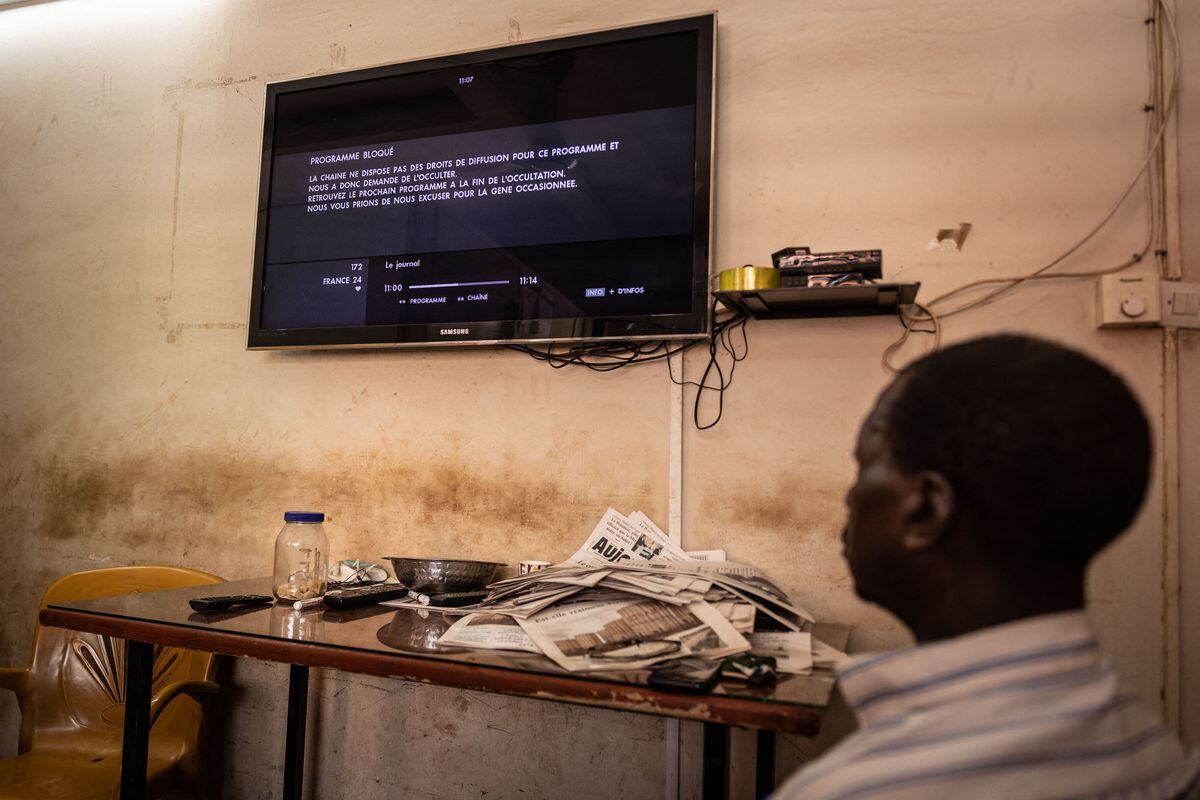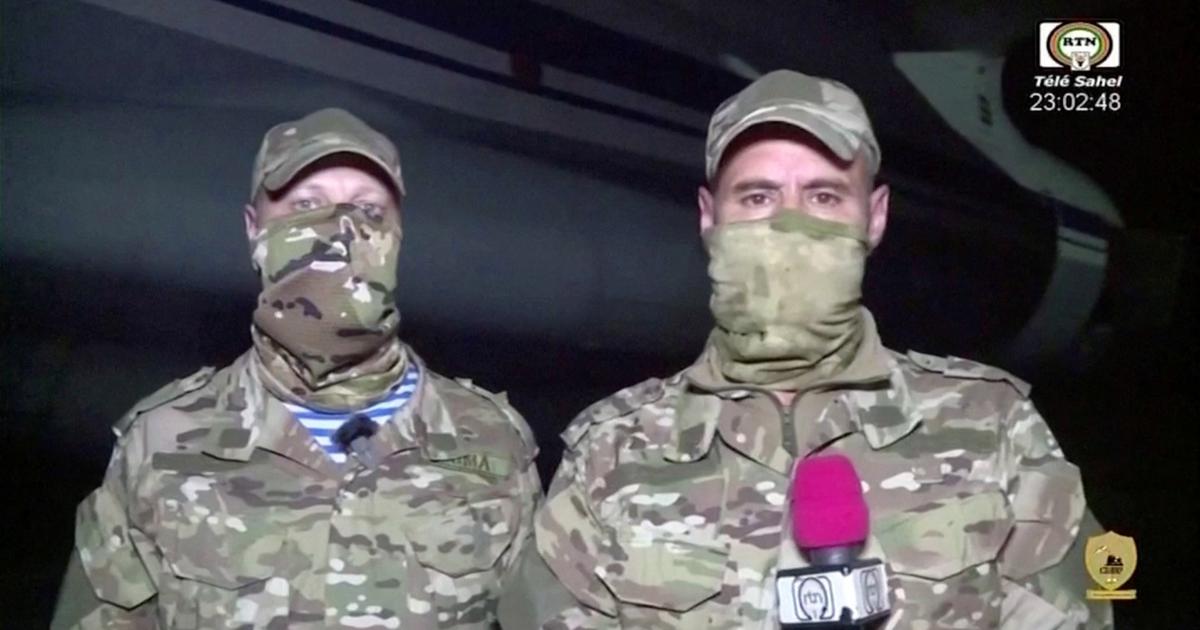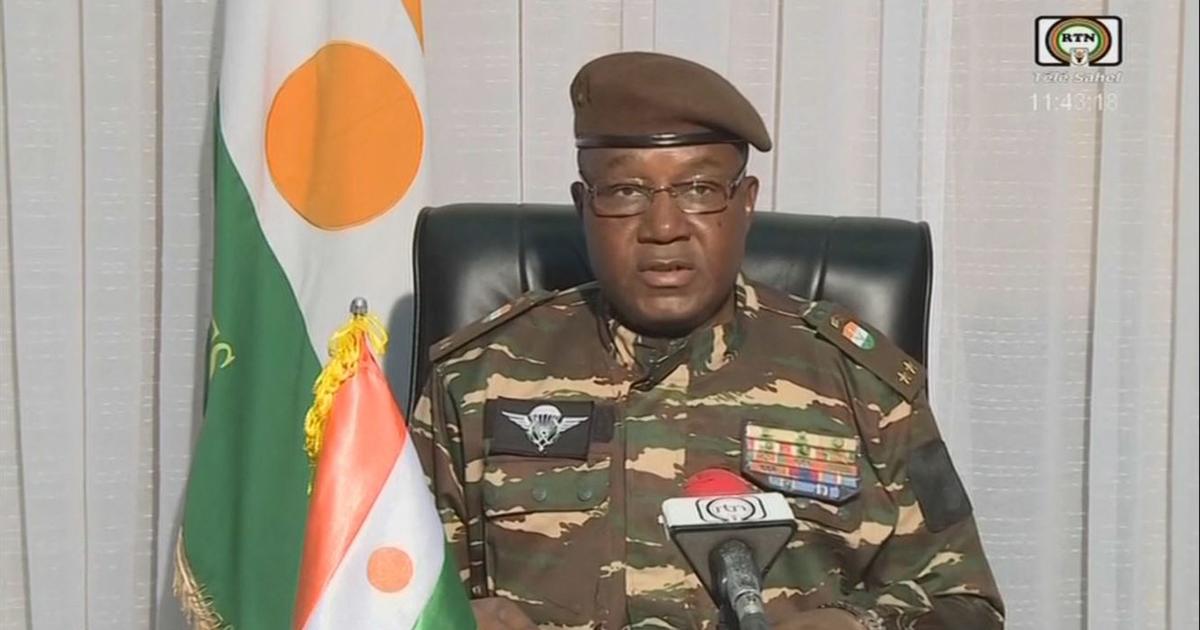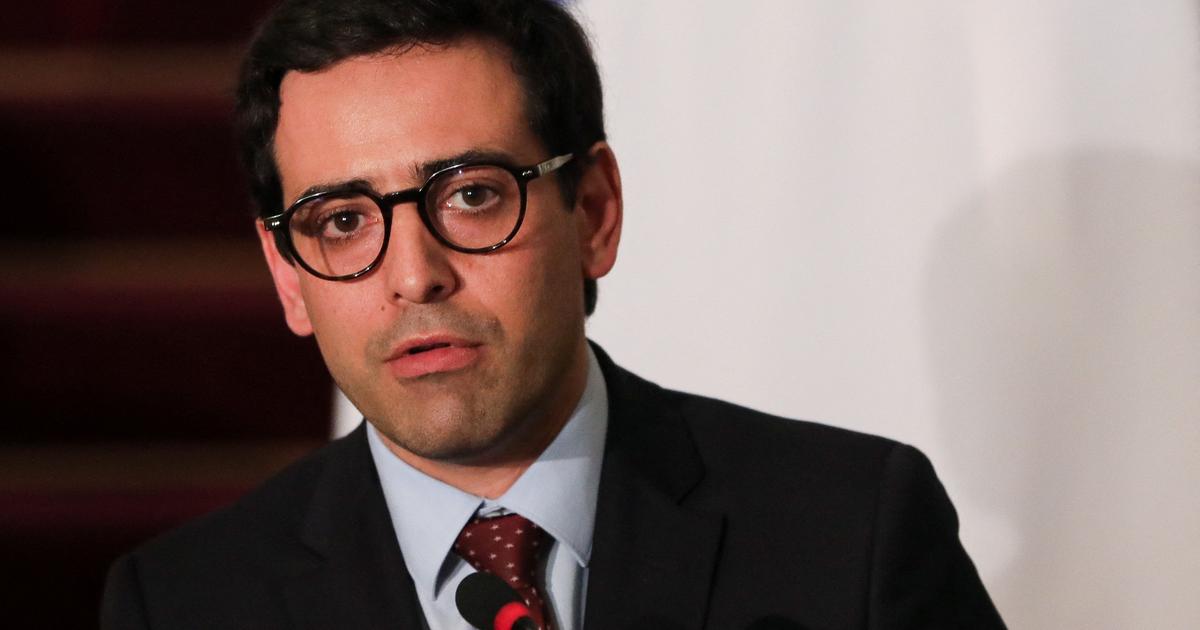The public university of Koudougou (in northern Burkina Faso) is named Norbert Zongo in memory of the Burkinabe journalist assassinated in 1998 while investigating the death of the personal driver of François Compaoré, the younger brother of former president Blaise Campaoré.
One of his legacies was the bimonthly publication
L'Indépendant,
which years later would be renamed
l'Événement,
and which is currently based in the Burkinabe capital, Ouagadougou.
Its director, Atiana Serge Oulon, affirms that the context for practicing journalism in the country today is "hostile", but that "we must continue working to offer fair information and working with verifiable sources in order to allow society to advance."
"Normally, I traveled through the interior of the country, now I hardly move anymore," says Oulon in the report
In the shoes of a journalist in the Sahel
,
presented by Reporters Without Borders (RSF) this Monday in Dakar, about the difficulties for informers in this part of the world.
An informant in Burkina Faso can no longer go where the events are taking place.
Since June 2022, civilians and journalists have been prohibited from traveling to the province of Soum (border with Mali) and to the forests between Pama and the W National Park, in the east of the country, classified as "areas of military interest".
"We must be more professional than ever in the treatment of information so as not to give rise to criticism," adds Oulon, who works tirelessly and has a phone that rings every minute.
Normally, I traveled through the interior of the country, now I hardly move anymore
Atiana Serge Oulon, journalist, director of l'Événement
Burkina Faso ranks 41st in press freedom, ahead of Italy, according to the 2022 Reporters Without Borders ranking, and has 80 newspapers and 185 radio stations.
A figure that places it as one of the African countries with the greatest presence and diversity of media and the best positioned in the Sahel, the semi-desert cord that crosses the continent from east to west.
Although this photograph has changed.
Spanish journalists David Beriain and Roberto Fraile were assassinated in April last year by a terrorist group while reporting on poaching in eastern Burkina Faso.
Local journalists work every day under pressure and threats that have intensified since the rule of a military junta led by Captain Ibrahim Traoré, after a coup d'état on September 30, 2022.
This last week, the Government has gone a step further with the suspension of the broadcast of the French-speaking channel France24 and the expulsion of two correspondents from
Libération
and
Le Monde.
"The chain does not have the broadcasting rights for this program and we have asked to hide it", is the message that the France24 channel has broadcast since Monday.
The decision to cut the signal was made after jihadism specialist Wassim Nasr released a live analysis of the responses he had gotten after interviewing Abu Obeida Youssef al-Aanabi, the jihadist leader of the Support Group for Islam and Muslims (JNIM, for its acronym in Arabic), linked to Al Qaeda.
Despite the fact that he did not spread the word or the literal responses, Burkinabe government spokesman Emmanuel Ouedraogo explained in a statement that France24 had given a space for "legitimization" to terrorism and that is why it was suspended.
The military junta that now rules Burkina Faso is gaining popularity among the population, at the same time that it increasingly controls the media space
Two days later, the correspondents for the French media
Libération
and
Le Monde
were expelled from the country after the publication of an article in which the Burkinabe army was linked to the execution of children and young people.
According to
Liberation
, the national intelligence services interrogated the two journalists for an hour.
Once at their home, they received a visit from a lieutenant who gave them 24 hours to leave the country.
Neither of them signed the publication for which they were expelled.
Other international journalists, in addition, have been summoned by state entities to “exchange” meetings, in their words, to talk and receive warnings about their work in the field.
In his opinion, what the media have does not correspond to reality.
And it is not the first time that this has happened in the Sahelian country.
In December, the government suspended the broadcasting of
Radio France Internationale
(RFI) attributing to him "the demotivation of thousands of Burkinabe mobilized for the defense of the homeland" after having spread an "intimidation message" from a "terrorist leader".
Burkina Faso is one of the countries, along with Mali, Niger and Chad, involved in a cross-border conflict between non-state armed groups and the national armies and their allies.
In 2015, the first violent incidents occurred in Burkina Faso and since then it has lived in a spiral of violence.
At least 10,000 people have died and two million have had to flee their homes because of the attacks perpetrated by terrorist groups related to the Islamic State and Al Qaeda.
war communication
In this context, the military junta that now governs the country is gaining popularity among the population, at the same time that it increasingly controls the media space through public television (RTB) and social networks,
with a single story: the state's offensive against terrorism has begun.
This week, public television (RTB) has broadcast some videos recorded by the army in which drones are seen shooting at "an armed terrorist group, on the move, made up of about twenty motorcycles," according to their information.
Those same videos have circulated on WhatsApp and social networks such as Facebook, where most of the comments are of encouragement to the army and unconditional support for the president.
The RSF report on press freedom in the Sahel indicates that the patriotic mandate of the military juntas "favors the development of commissioned journalism and a phenomenon of omertá [law of silence]
around
certain sensitive issues."
Local organizations have also shown their concern about the restriction of freedom of expression.
In a statement sent to the AFP news agency at the end of March, the Burkinabé Movement for Human and Peoples' Rights declared itself "dismayed by the kidnapping and forced conscription" as a homeland defense volunteer.
(VDP)
de Boukaré Ouédraogo, president of the Appel de Kaya movement
,
after he publicly criticized the government for the lack of security in the town of Kaya.
A few days later, the head of state, Ibrahim Traoré, declared from the same city that "a person in charge of civil society [without mentioning Ouédraogo] had been recruited to join the VDP", a popular militia created in 2020 to fight against terrorism and currently have at least 90,000 registered volunteers.
After these statements, images of the activist dressed in a uniform and holding a weapon began to circulate on social networks.
No journalist on the ground dares to investigate Wagner's presence
Reporters Without Borders report
The All Eyes on Wagner (AEOW) project, which monitors Wagner's paramilitary activities ―Russian mercenaries increasingly present on the African continent― has already warned that the "Burkkinese media ecosystem" has been manipulated through "fake" accounts in social networks creating and disseminating pro-Russian content.
The director of Reporters Without Borders in Africa, Sadibou Marong, stresses that "from now on, we will have to learn to investigate the Wagner militia, which exerts an increasingly palpable influence in the information space of the Sahel."
According to the NGO, pro-Russian accounts began to appear on social media in Mali at the same time that Wagner's mercenaries were deployed in the country in December 2021. Now "no journalist on the ground dares to investigate Wagner's presence." , affirms RSF after interviewing professionals working in the Sahel.
"The media is between the sword of the terrorists, and the wall of the military junta and its Russian partners," says one of the journalists.
Although the RSF report warns that the working conditions of journalists have deteriorated in the last ten years in the region —five journalists have been killed and another two have recently disappeared—, resilience strategies are being developed to continue working with professionalism.
In the midst of the information chaos, there are projects such as Mali Check, Africa Check or DésinfoxTchad, which have been born
with the mission of verifying information published both by "political authorities" and content that circulates on social networks.
You can follow PLANETA FUTURO on
,
and
, and subscribe
here
to our 'newsletter'
.





/cloudfront-eu-central-1.images.arcpublishing.com/prisa/KEJKPQHVMJAPJONPEDK42JL56U.jpg)



